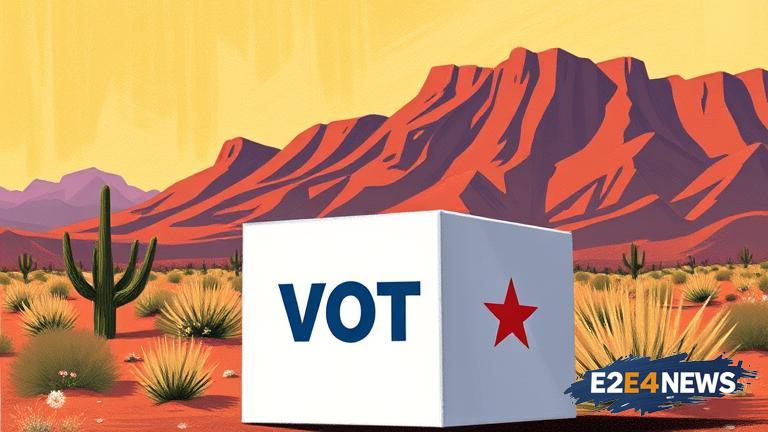In a move that has significant implications for the upcoming elections, Arizona’s Secretary of State has revised the state’s elections rulebook. The modifications come as a result of Republican lawsuits that challenged certain aspects of the state’s election procedures. The revised rulebook aims to address concerns over voter verification, ballot counting, and election observer access. However, the changes have been met with criticism from Democratic lawmakers and voting rights advocates, who argue that the revisions will disproportionately affect minority and low-income voters. The Republican lawsuits that prompted the revisions alleged that the state’s election procedures were vulnerable to fraud and did not provide adequate safeguards to ensure the integrity of the electoral process. The Secretary of State’s office has maintained that the revisions are necessary to ensure the accuracy and security of the state’s elections. The revised rulebook includes new requirements for voter verification, including the use of unique identifiers and enhanced signature verification protocols. Additionally, the rulebook establishes new procedures for ballot counting and tabulation, including the use of paper ballots and manual recounts in certain circumstances. The revisions also provide for increased access for election observers, allowing them to monitor the electoral process more closely. However, critics argue that the revisions will lead to longer wait times at polling stations, increased costs for election administration, and a disproportionate burden on minority and low-income voters. The debate over the revised rulebook has highlighted the deepening partisan divide over voting rights and election integrity in Arizona. Republican lawmakers have hailed the revisions as a necessary step to prevent voter fraud and ensure the integrity of the electoral process. In contrast, Democratic lawmakers have condemned the revisions as an attempt to suppress voter turnout and undermine the democratic process. The controversy surrounding the revised rulebook has also sparked concerns over the potential impact on voter participation and election outcomes. As the state prepares for the upcoming elections, the revised rulebook is likely to be a major point of contention. The Secretary of State’s office has emphasized that the revisions are intended to ensure the accuracy and security of the state’s elections, but critics argue that the changes will have far-reaching consequences for voting rights and democracy in Arizona. The revised rulebook has been met with widespread criticism from voting rights advocates, who argue that the changes will disproportionately affect minority and low-income voters. The controversy has also sparked concerns over the potential impact on voter participation and election outcomes. In response to the criticism, the Secretary of State’s office has emphasized that the revisions are necessary to ensure the integrity of the electoral process. However, the debate over the revised rulebook is likely to continue, with both sides dug in over the issue of voting rights and election integrity. The revised rulebook has significant implications for the upcoming elections, and the controversy surrounding the changes is likely to be a major point of contention in the months leading up to the election. As the state prepares for the upcoming elections, the revised rulebook is likely to be a major focus of attention. The controversy surrounding the revised rulebook has highlighted the deepening partisan divide over voting rights and election integrity in Arizona. The debate over the revised rulebook is likely to continue, with both sides dug in over the issue of voting rights and election integrity. The revised rulebook has significant implications for the upcoming elections, and the controversy surrounding the changes is likely to be a major point of contention in the months leading up to the election. The Secretary of State’s office has emphasized that the revisions are intended to ensure the accuracy and security of the state’s elections, but critics argue that the changes will have far-reaching consequences for voting rights and democracy in Arizona.





